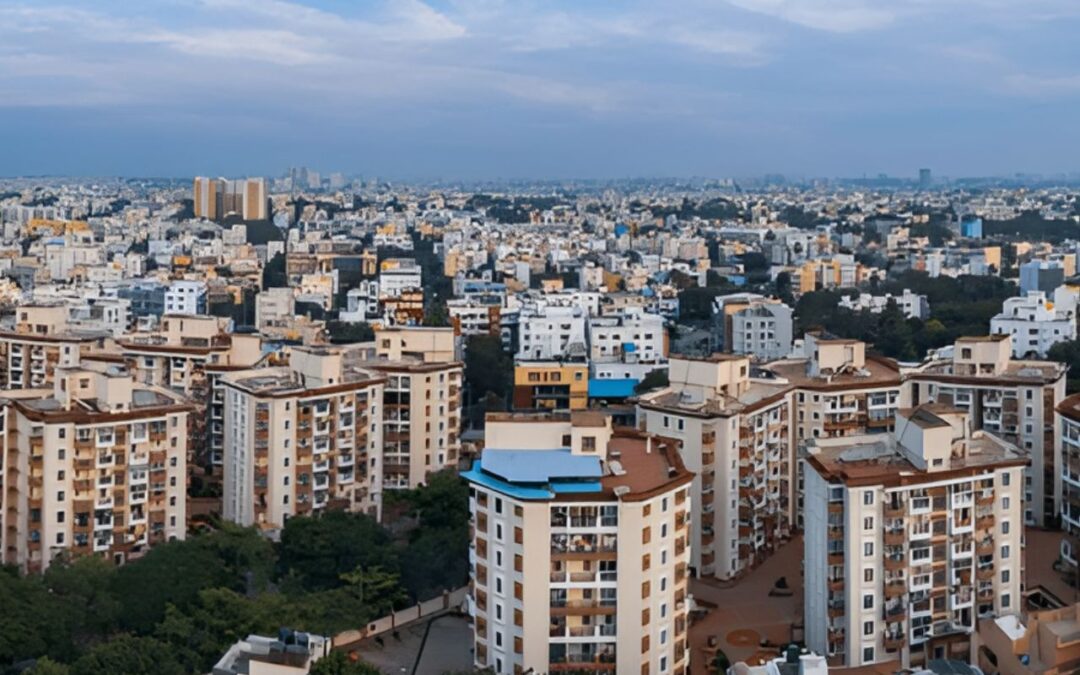If you’re on social media, you must have come across financial influencers shouting: “Don’t buy a house!” or “Buying a flat is the worst financial decision!” Their arguments usually revolve around low rental yields, high EMIs for 20 years, or the idea that you could make far higher returns if you invested the same amount in equity, mutual funds, or even crypto.
Sounds convincing, right? But let’s pause and think for a moment. Is owning a home really such a bad financial move? Or are these hot takes just a way to grab your attention?
The reality is – a lot of these “don’t buy a house” posts are nothing more than clickbait. They are designed to trigger debate, get people arguing in the comments, and ultimately increase the influencer’s engagement. After all, if they simply say “real estate is a good long-term investment”, their posts won’t get likes, shares, or heated discussions. But if they take a contrarian stance, it instantly creates drama. And drama equals reach.
Unfortunately, in the process, many young Indians get misled into thinking that buying a house is a “dumb decision.” And that’s one of the worst financial takes floating around today. Let’s break this down and understand why owning a house still makes sense for most Indians.
1. Emotional Security and Stability
Money isn’t everything in life. Having your own house gives you a sense of emotional stability and security that no rented flat can match. Imagine living in a rented place where the landlord can suddenly increase the rent, refuse an extension, or ask you to vacate in 30 days. Stressful, right?
Owning a house eliminates that uncertainty. You can truly call it your space. You can design it the way you want, invest in interiors without worrying, and build memories with your family. For Indian households, that emotional value is priceless.
2. Renting is Not Always Cheaper
Finfluencers often compare rent vs EMI and conclude: “Look, rent is cheaper, so renting is smarter!” But they ignore the fact that rent keeps increasing year after year.
If you’re paying ₹25,000 per month today, in 10 years, it could easily cross ₹40,000. That’s money going straight into someone else’s pocket. With EMIs, yes, the amount may feel heavy initially, but over time, your salary grows while the EMI remains fixed. Eventually, you own the property, while renters keep paying forever.
3. Cultural Importance in India
Unlike in the West, where renting is common, owning a home in India is tied to pride, identity, and family status. Parents dream of buying a house, and children grow up aspiring for the same. A “ghar” is not just a financial asset here – it’s a cultural milestone.
When people say “don’t buy a house,” they’re usually borrowing Western financial logic without considering Indian realities. In India, a house is much more than numbers on a spreadsheet – it’s about roots, legacy, and belonging.
4. Real Estate is a Long-Term Wealth Builder
Yes, the rental yield in India may be low (2–3% annually), but that’s only one side of the picture. The real gains in real estate come from capital appreciation over decades.
For example, flats that sold for ₹20–25 lakh in Bengaluru, Pune, or Noida in the early 2000s are worth over ₹1 crore today. That’s 4–5x growth in two decades – and this doesn’t even factor in the rental income.
While stock markets can be volatile and crypto is highly unpredictable, real estate has been a proven wealth creator in India.
5. Forced Savings and Discipline
One underrated benefit of taking a home loan is that it forces financial discipline. The monthly EMI, though sometimes stressful, ensures that you’re consistently building equity in a tangible asset.
Many people spend freely when renting, but once you have a home loan, you automatically cut down unnecessary expenses. By the time the 15-20 year loan ends, you own a valuable property outright – something that very few people regret.
6. Hedge Against Inflation
Real estate is one of the best inflation hedges. As prices of goods and services rise, so do property values and rents. Owning a home ensures that you’re shielded against future housing cost inflation.
Think about your parents or grandparents – many of them bought property decades ago at a fraction of today’s cost. Imagine if they hadn’t – paying current rental prices would have been a massive financial burden in retirement.
7. Peace of Mind in Retirement
A huge advantage of owning a house is that you don’t have to worry about rent once you retire. With no regular income, paying rent becomes a massive burden for elderly couples. But those who own a house live with peace of mind, knowing they’ll never be asked to vacate.
Final Thoughts: Don’t Get Misled by Clickbait
Social media thrives on extremes – and “don’t buy a house” is the latest fad. But before you blindly follow such advice, ask yourself:
- Do you want long-term security for your family?
- Do you want peace of mind in retirement?
- Do you want to build wealth steadily and safely?
If the answer is yes, then buying a house isn’t a bad decision – it’s a smart one.
Sure, financial planning should include investments in equities, mutual funds, and other assets. But dismissing home ownership altogether is short-sighted. In India, having your own house is still one of the best long-term financial and emotional investments you can make.
So, the next time you see a flashy post telling you not to buy a house – remember, it’s just clickbait. Don’t fall for it.

Kritesh (Tweet here) is the Founder & CEO of Trade Brains & FinGrad. He is an NSE Certified Equity Fundamental Analyst with +7 Years of Experience in Share Market Investing. Kritesh frequently writes about Share Market Investing and IPOs and publishes his personal insights on the market.


